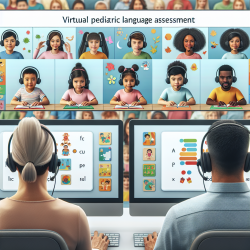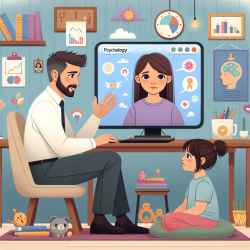Introduction
In the rapidly evolving digital age, libraries are redefining their roles to better serve their communities. A recent study, "Improving Community Well-being through Collaborative Initiatives at a Medical Library," provides a compelling case for how libraries can foster well-being among healthcare professionals through mindfulness and self-care initiatives. This blog explores how practitioners can enhance their skills by implementing similar collaborative wellness programs in their own settings.
The Role of Mindfulness and Self-Care
The study conducted at the Harvey Cushing/John Hay Whitney Medical Library at Yale University highlights the significant stress healthcare professionals face, which can lead to burnout and mental health challenges. To address this, the library developed a group mindfulness program and a dedicated self-care space. These initiatives aimed to alleviate stress and improve the well-being of their community members, including students, faculty, and healthcare staff.
Implementing Collaborative Wellness Initiatives
For practitioners looking to improve their skills and contribute to community well-being, the following steps can be taken based on the study's outcomes:
- Identify Community Needs: Understand the specific stressors and well-being needs of your community. This could involve conducting surveys or informal discussions with stakeholders.
- Collaborate with Stakeholders: Engage with students, faculty, and other community members to co-create wellness programs. Collaboration can enhance program relevance and community buy-in.
- Develop Mindfulness Programs: Organize regular mindfulness sessions, which can be facilitated by trained professionals or knowledgeable students. These sessions should be accessible and cater to various experience levels.
- Create Self-Care Spaces: Dedicate a space for self-care activities, allowing individuals to engage in mindfulness, prayer, or relaxation. Ensure the space is inclusive and accessible to all community members.
- Gather Feedback and Iterate: Continuously seek feedback from participants to refine and improve the initiatives. This iterative process ensures the programs remain effective and responsive to community needs.
Encouraging Further Research and Development
While the initiatives described in the study are a valuable starting point, practitioners are encouraged to conduct further research to tailor these programs to their unique contexts. Exploring additional wellness activities, integrating technology, and addressing structural challenges within the community can enhance the effectiveness of these initiatives.
Conclusion
By implementing collaborative wellness initiatives, practitioners can significantly contribute to the well-being of their communities. These programs not only help alleviate stress but also foster a supportive and resilient environment. As the study demonstrates, libraries and similar institutions can play a pivotal role in promoting mental health and well-being through innovative and collaborative efforts.
To read the original research paper, please follow this link: Improving community well-being through collaborative initiatives at a medical library.










